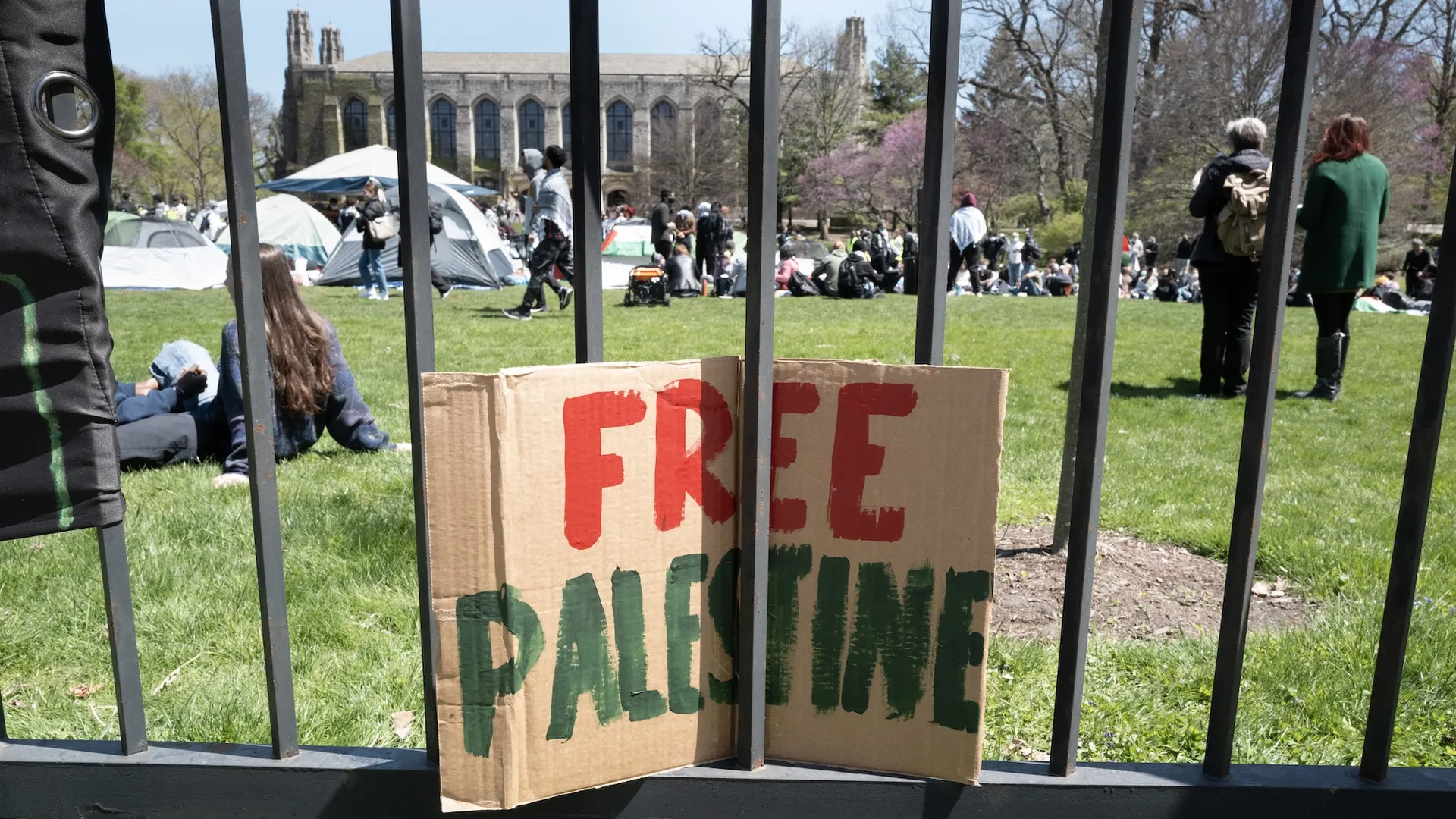In last chapter of Climate of Contempt, I argue that the future of the energy transition is intertwined with the future of liberal democracy. I write in chapter 6 that only voters can peacefully reverse the “trend of ever-increasing polarization and tribalism,” and that “if [that trend] continues to escalate, it risks the kind of periodic, identity-based political violence we associate with the sectarian conflicts of Northern Ireland and Israel/Palestine.”
This is a problem for the energy transition because climate policy is now firmly partisan, and it is increasingly seen through a culture war lens. Since support for the two political parties is relatively evenly divided and there are no signs of an imminent partisan realignment among voters, creating stronger climate policy implies working with a GOP in the grip of identity-based populist fervor.
Maybe we shy away from this part of the political challenge because it requires grappling with the role that intense emotions — ours as well as the emotions of others — play in politics. It’s more comfortable to speak in terms of ideas or economic interests than to confront rage and resentment. If we focus on rational and purposeful behavior instead, it is easier to think about solutions to problems, and hopeful paths forward look more plausible.
But emotion has always played a big role in political behavior, in ways social scientists have struggled to measure. Writing in the 1990s, American political scientist Theodore Lowi railed against the way his discipline’s flirtations with economics and more scientific methods steered attention away from “passion” in politics. To Lowi, his discipline was ignoring a truth voiced earlier by a British historian of English Parliaments, Lewis Namier, who concluded that “what matters most” in politics “is the underlying emotions, the music, to which ideas are a mere libretto, often of very inferior quality.”
Politicians, influencers, and others who want to persuade us seem to be more comfortable using emotion to build loyalty (and opposition) to partisan or other group identities. Modern media allows politicians and other persuaders to amplify and manipulate that emotion more efficiently than ever before.
In the first decade of this century, when cable news channels were new and the “war on terror” dominated their programming, former congressman Peter King (R-NY) was ubiquitous on TV. King fanned fears of Islam and Muslims (“There are too many mosques in this country!”), and frequently deflected attempts to understand others’ views as “psychobabble.” I have been reminded of King as our college campuses (including my own) have erupted in protest recently over the violence in Gaza and Israel.
It is particularly distressing to see some students (and faculty) on both sides of the conflict discuss the issue with such hyperbolic contempt for those who see the problem differently. In that supercharged environment Israel’s supporters see supporters of Palestinians as “pro-terrorist,” and pro-Palestinian groups see supporters of Israel as “pro-genocide.” Each side’s frustration, fear and pain blinds it to the other’s, and so we get this sort of language, and no one learns or is persuaded.
The same dynamic drove the extended brutality of The Troubles in Northern Ireland in the late 20th century. That long-simmering violent conflict was characterized by tribal animosity between Protestants and Catholics and by each group’s tolerance of violence inflicted on the other. As recently as 2005, approximately 70 Catholic eyewitnesses to the Belfast murder of Robert McCartney refused to cooperate with the Protestant authorities. (Interestingly, Peter King was a supporter of the Irish Republican Army.)
Like most members of Congress, King’s rhetoric was tailored to his constituents’ emotions. For his entire congressional career King represented districts that were politically competitive. When he was first elected, the Cook Political Report gave his district a D+5 rating; in his last term his district was rated R+5. Anti-Islam bigot that he was, he sat to the ideological left of 200 other Republican House members, and to the right of only seven. Maybe his talent for voicing constituent anger was how he survived for so long in a national GOP that was changing around him. Ideas are “mere libretto,” while emotion is the music.
In the last chapter of Climate of Contempt, I quote several academic historians’ warnings that the United States is barreling toward a violent and repressive authoritarianism. As noted in several previous blog posts, we/they group identities are integral to those sorts of transitions. They can overwhelm liberal democratic norms, and can grow and fester undisturbed in segregated, homogeneous communities – neighborhoods in Northern Ireland or Gaza and Israel in the Middle East, or algorithmically segregated social media communities.
The following passage, written by another prominent historian, was not included in Climate of Contempt but it reads like it could have been.
[T]he modern right wing … feels dispossessed: America has been largely taken away from them and their kind, though they are determined to try to repossess it and to prevent the final destructive act of subversion. The old American virtues have already been eaten away by cosmopolitans and intellectuals; the old competitive capitalism has been gradually undermined by socialistic and communistic schemers; the old national security and independence have been destroyed by treasonous plots, having as their most powerful agents not merely outsiders and foreigners as of old but major statesmen who are at the very centers of American power.
This sounds like a description of 21st century right populism, but this passage comes from a well-known essay in Harper’s Magazine by Richard Hoftsadter in 1964 called “The Paranoid Style in American Politics.” The passage describes supporters of Barry Goldwater’s 1964 presidential campaign, not Trump supporters.
And therein lies the lesson about how our politics has changed. Barry Goldwater was soundly rejected by the electorate. He won only 38% of the vote to Lyndon Johnson’s 61%, and only 52 electoral votes to Johnson’s 486. The right populists and other extremists who alarmed Richard Hofstadter in 1964 were a small, discredited subset of the electorate. They could not “grow and fester undisturbed” back then. Mainstream media marginalized them as bigots or fantasists, and the states where they lived – the states that gave Goldwater his only electoral votes – were already then beginning to experience a massive influx of migrants from the north and Midwest that continues today.
So what’s different today? There was no internet then — no fractured information bubbles from which to recruit new members into extremist ideological communities, insulated from outside contact. As energy transition policy gets wrapped into the culture war, its fate will be tied to this fight over the survival of liberal democracy.
That is an unpleasant reality. Maybe some unforeseen shock will change it, but right now it seems to be the reality we have. And that is why organizing hatreds backfires.
One way to try to change that reality is to talk to each other across party lines now, before conditions worsen further. That uncomfortable work requires acknowledging the emotional dimensions of today’s bitter partisanship, and looking for ways to stop it from derailing liberal democracy, and the energy transition with it. Maybe we should spend more energy trying to understand the emotional drivers of dysfunction, and less energy feeding those emotions. — David Spence


